It’s the best time of the year. The sun is out again, the daffodils are starting to bloom and the literary prize longlists are being announced. I’m not so fussed about the Oscars, but the Women’s Prizes, the International Booker and the Nibbies are much more my jam.
I mentioned in my previous post that I’m trying not to read so many ‘hot’ new titles. Instead, I’ve been enjoying letting books simply catch my fancy — whether those are novels on my TBR that I haven’t got round to for whatever reason, titles I find in the library (more on that later) or eye-catching covers I gravitate towards in bookshops. I’m spending a lot less time on Bookstagram and am therefore less clued up on which books the publishers are pushing this season. I love the feeling of autonomy that intuitive reading fosters, especially as an ex-Publishing employee (and nerd) who still feels like my extracurricular reading should be ‘useful’ in some way.
That said, I love a prize list. While I no longer feel like a bad book person if I haven’t read many of the books on a longlist, I still love seeing which titles have been selected.
So here are my thoughts on the recent announcements:
The Women’s Prizes
As a lover of literary fiction by female authors, the Women’s Prize for Fiction has been one of my favourites since it was called the Orange Prize (and then the Bailey’s Prize). Last year, they introduced the first ever Women’s Prize for Non Fiction, and I was lucky enough to go to the shortlist readings, where the twelve authors (six for each prize) read from their incredible books.
The longlist for this year’s Women’s Prize for Non Fiction was announced on 12th February and the titles sound fascinating. I’m always trying to read more non fiction, and while I haven’t read any of these titles, I will certainly be adding some of them to my list. I love the range of genres and themes that is to be found on any good non fiction prize list: in this year’s, there’s a book about the life of Paul Gaugin, another about coming of age in a new China, one about women’s fight for justice, another about the future of the oceans and the story of a female WW2 resistance fighter. I especially have my eye on Ootlin, which is about the UK care system, and Raising Hare, which has been compared to H is For Hawk in its blending of memoir and the natural world. The shortlist will be announced on 26th March and while I won’t be trying to read as many of the books as I can in the next two weeks, I look forward to seeing which titles make the list.
The Women’s Prize for Fiction has a much longer history. I recently read the 2024 winner, Brotherless Night (read to the end for my review) and the 2023 winner, Demon Copperhead was my favourite book that year. I always respect the panel’s taste and do tend to read more books on this longlist than any of the other prizes — including the Booker.
This year’s list is exciting, although I’ve only read two of the titles (and worked on another one, although I’m still yet to read it…): The Ministry of Time was one of my favourite reads of 2024 and I’m pleased to see it included on this literary list, and Miranda July’s All Fours deserves all the hype it’s receiving. I love how many of my friends have been reading this riot of a read in their book clubs! The Safe Keep was shortlisted for the 2024 Booker Prize, and I think I’ll finally get round to reading it soon, along with the new Chimamanda Ngozi Adichie novel, which I’m not surprised to see here. The shortlist will be announced on 2nd April and I may end up reading a couple of the longlisted titles before then — once a prize lover, always a prize lover.
The winners of both prizes will be announced on 12th June, with the readings on 11th June. I’d really recommend this event for a lovely summer’s evening in Bloomsbury, if that’s your thing.
The International Booker Prize
The International Booker Prize is another one of my faves. The most influential prize for translated fiction, it always highlights some brilliant and deserving titles. I happened to read Perfection by Vincenco Latronico (trans. Sophie Hughes) the week before this year’s longlist was announced, and was very happy that it made the list. My review of the novel is also at the end of this post. I haven’t read any of the other titles on this year’s longlist, but this is where I’m going to make an exception to my rule and try to read a few more of them. I think we all could and should read more translated fiction and this is a really great place to find inspiration.
As ever, I’m thrilled to see so many indie publishers on this list: Perfection is published by Fitzcarraldo (whose titles have won quite a few International Booker Prizes), and there are novels from publishers including And Other Stories, Small Axes, Pushkin, Granta, Serpent’s Tail, Tiltes Axis, Bullaun Press (which I hadn’t even heard of before!) and Lolli Editions. I think there’s only one title by a Big Five publisher, and that’s really refreshing to see. It can be hard for the indies to get visibility in such a competitive and commercial market, but they clearly excel when it comes to translated fiction. I love it!
The British Book Awards (aka The Nibbies)
Next up is the Nibbies, one of the biggest events of the Publishing Industry’s year. The British Book Awards not only celebrates the biggest books of the year, but also the people who make them, with a suite of Trade awards announced alongside the Book of the Year categories (which include Author of the Year, Fiction Book of the Year, Pageturner of the Year, Crime & Thriller Book of the Year, Debut Fiction Book of the Year, and many more). There are too many titles to list here, but check out The Bookseller for more information. These books are generally more commercial and also more visible — the Nibbies take sales success and PR and Marketing campaigns in consideration as much as the strength of the writing and plot.
Literary prizes are interesting as they raise awareness outside of the Publishing bubble; beyond the obvious reward for the author and publisher, the lists themselves help literary readers decide which book to pick up next. Sometimes I worry that I’m still too much of an insider and question whether any of you care about these awards, but then I remember how many of my friends and family members go to the Booker Shortlist readings at the Southbank Centre. If you go into a bookshop to buy a present for a friend, I suspect you might be drawn to the prize listings tables, and we all love a foil sticker on a cover. Prizes do have influence, for good or for bad, and I think it’s worth paying attention to the announcements without only ever reading books that have been nominated. Of course, that’s before we even get into the matter of literary versus commercial fiction, and what makes a book good or prize-worthy…
What do you think? Do you care for prize-winning titles, or do literary awards not even cross your mind when you’re deciding what to read, gift or recommend?
Recent reading habits and recommendations
I haven’t been reading as much as I’d like to, but I’m trying to change that this month. I recently rejoined my local library and am very excited about it. I know we all know about libraries, but I wonder how many of you still use them. Do you know they’re completely free? Do you know you can also borrow eBooks? It’s pretty cool, to be honest!
I spent an hour browsing the shelves when I joined and I felt like a child again, remembering happy hours spent choosing the titles I’d take home with me. This time, I opted for a book of poetry (which I didn’t enjoy and won’t be recommending here), a Cathy Rentzenbrink novel which I’ve had to extend for another month and Brotherless Night, the Women’s Prize winning novel I mentioned earlier. I suspect I wouldn’t have got round to reading this stunning, affecting story set in the Sri Lankan civil war if I hadn’t spotted it on the library shelves, and I’m excited to see what I discover when I go back this week. If you take anything from my posts, I’d love you to remember the value of a library and go and join your local one when you have a spare hour. You won’t regret it.
I can’t keep up with the other book bloggers who manage to read 10+ books every month and write detailed reviews and round-ups of them all, but here are some of the books I’ve enjoyed in the last month or so:
Brotherless Night
Brotherless Night won the 2024 Women’s Prize for Fiction but it took me a whole year to finally pick it up. I’m so glad I did, because this is one of those novels that will stay with me.
Spanning from 1981 to 2009, this beautiful, heart-wrenching novel set in the Sri Lankan civil war follows a remarkable young protagonist called Sashi. Growing up in Jaffna with her four brothers, Sashi dreams of becoming a doctor. But just as she begins her medical training, tensions between the Sinhalese-dominated government and Tamil separatist groups escalate. Soon, her whole life is overturned by the increasingly violent war, yet she remains determined to help others in whatever way she can.
Ganeshananthan has crafted an impressively researched work of historical fiction that remains remarkably accessible. I’ve read a few books about the Sri Lankan civil war but Brotherless Night has helped me understand its complexities on a deeper level, largely because of its intense humanity. Through the gentle, empathetic Sashi — whose story blends reportage and memoir, occasionally addressing a presumed uninformed reader in the second person — Ganeshananthan depicts the brutality and suffering inflicted by all sides. One of the novel’s greatest strengths is the way that the narrator withholds judgement, preventing the reader from jumping to simple conclusions about which side and which characters are ‘good’ or ‘bad’. While Sashi is full of compassion, her emotions are also mostly restrained, leaving space for the reader’s own feelings and reactions to the sad and horrific events described, many of which are based on historical fact.
Yet despite the pain, suffering and grief depicted, there is also a lot of beauty and love. Sashi builds strong relationships in each chapter of her story, many of which are tested when the conflict forces individuals to take sides; Ganeshananthan’s prose tenderly presents the protagonist’s moral conundrums and devastating decisions. War pushes the boundaries of the human experience, and it’s remarkable how much of it is covered and conveyed in this hard-hitting story.
While Brotherless Night is a challenging and upsetting read, it’s an important one. I’d highly recommend adding it to your TBR.
Perfection
It’s quite brave to call your novel Perfection, but this wasn’t far off.
This slim book tells the story of a millennial couple from an unnamed Mediterranean country who move to Berlin in pursuit of a better, more ‘perfect’ life.
Constantly dissatisfied with what they have, the protagonists are unlikeable yet relatable—the more frustrating and self-indulgent they seem to the reader, the more they hold up a mirror to contemporary society.
Tom and Anna try to make their life seem glamorous and enviable on social media, even when they’re unhappy. They spend their weekends following their friends round galleries in Berlin, even though they don’t care about art. They try to spice up their sex life because they feel that’s what they ought to be doing, even though they don’t particularly enjoy it. They find it easier to care about the refugee crisis when it’s on their doorstep and there are tangible things they can do to feel important.
I loved the detached, pared back descriptions of this largely unfulfilling lifestyle, beautifully translated by Sophie Hughes. There’s something of Annie Ernaux’s The Years in the matter-of-fact narration of events and behaviour: while centred around our protagonists, the actions are generalised and familiar. The prose describes a moment, more than anything else.
There is a lot of perfection to be found in this clever little novel, and I’d recommend it for fans of Fitzcarraldo books who aren’t as interested in plot as they are in character, setting and tone.
The Coin
The Coin is an uncompromising debut novel about a wealthy Palestinian woman living in New York. The unnamed protagonist is a schoolteacher with an unconventional approach, who spends her free time obsessing over her personal cleanliness and immaculate appearance. But she slowly finds herself unable to repress the pain of her childhood and her longing for her birth country, which is physically and metaphorically stuck in her chest.
The Coin is full of wry reflections on wealth, class, love, belonging, identity, power, violence, beauty and nature. It’s one of those literary novels that is likely to divide readers, with strong characterisation, an obscure plot and intense themes. It reads easily but it’s not always an easy read, if that makes sense?
While I wouldn’t recommend it for everyone, The Coin might be from you if you’re happy with a bit of discomfort and like a novel’s voice and ideas to percolate in your mind when you’ve finished reading it. I had an impassioned debate with my boyfriend about obscurity and audacity in literature after reading this novel, and I think that’s the kind of reaction literary fiction often seeks to provoke.
It’s been longlisted for the 2025 Dylan Thomas Prize, which says a lot about the novel’s creativity and originality.
The Let Them Theory
This is quite different from the literary novels above. As I’ve explained before, I love to listen to this kind of non fiction while running, as it feels more like a podcast and I don’t always need to give it my full attention.
I mentioned Mel Robbins in my last post but I haven’t read any of her books before, and I liked the sound of this self-help book which teaches the reader how to release control and just let things happen. Robbins came up with this theory after trying to micromanage her son’s prom evening, and was surprised by the response when she shared it online. Eventually, the theory grew and developed into this book, which therefore feels more fleshed-out and useful than some of the money-grabbing titles that come out of chart-topping podcasts or viral premises (has anyone actually read Steven Bartlett’s book, for example?) Robbins also co-wrote The Let Them Theory with her eldest daughter, which keeps the book relevant for and accessible to all kinds of readers.
The book basically explains that it’s a waste of your energy to worry about other people’s thoughts and behaviour all the time. However, rather than making you into a selfish island, the theory helps you spend your energy where it can be more effective. The book is divided into two sections, the first focusing on ‘Let Them’ and the second on ‘Let Me’. I definitely engaged more with the first half, and I especially enjoyed the chapter on friendship, which resonated more than some of the parenting chapters.
While this book wasn’t perfect, I can see why The Let Them Theory has struck a chord with millions of people around the world, and I’d recommend it for any fans of self help, the Mel Robbins podcast or anyone who struggles with always trying to control situations.
A promise
On reflection, not one of those books was particularly niche. While I didn’t read any of them because of their hype or success, they have all received public acclaim and they are all recent publications. I can try to defend myself by explaining that two of them had been sitting on my shelves for a while — in line with my intention to work through the books I already own —, one was from the library (an undeniable result), one was in translation (also an intention for this year) and another was definitely a ‘mood’ read. But I’ll try to resist the lure of the prizes and the spring marketing push and find a few more unexpected reads to explore this month. I’ll let you know how I get on…
That’s all for today, but I’ll be back soon with a more personal post that I’ve been working on for months, as well as some thematic round-ups. I’d love to hear what you’ve been reading and I’d also be keen to read something together, if any of you would be up for that? Just let me know :)




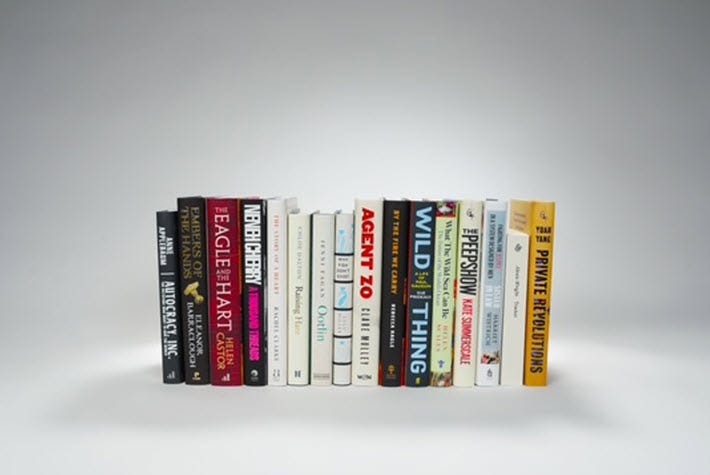
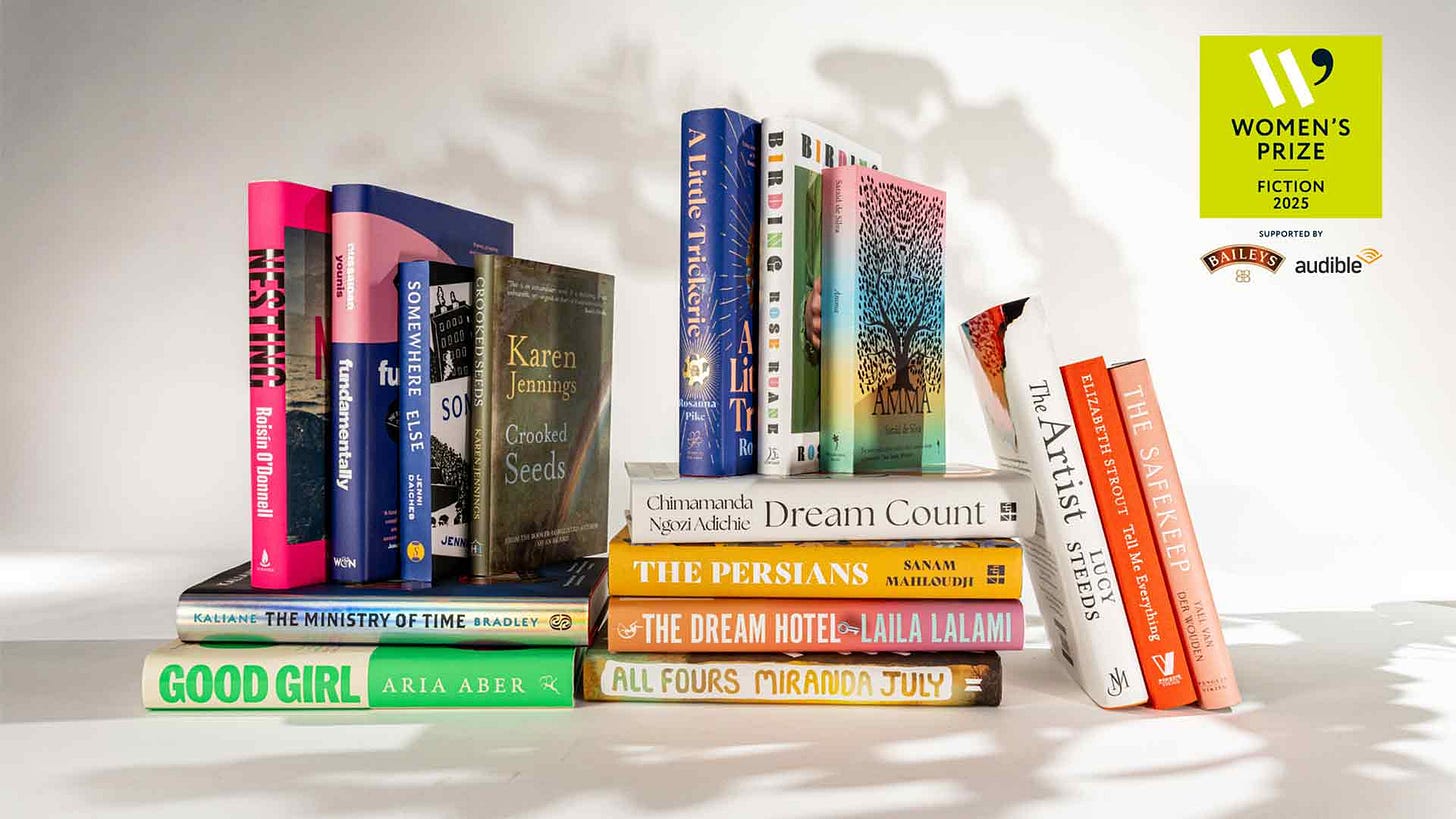

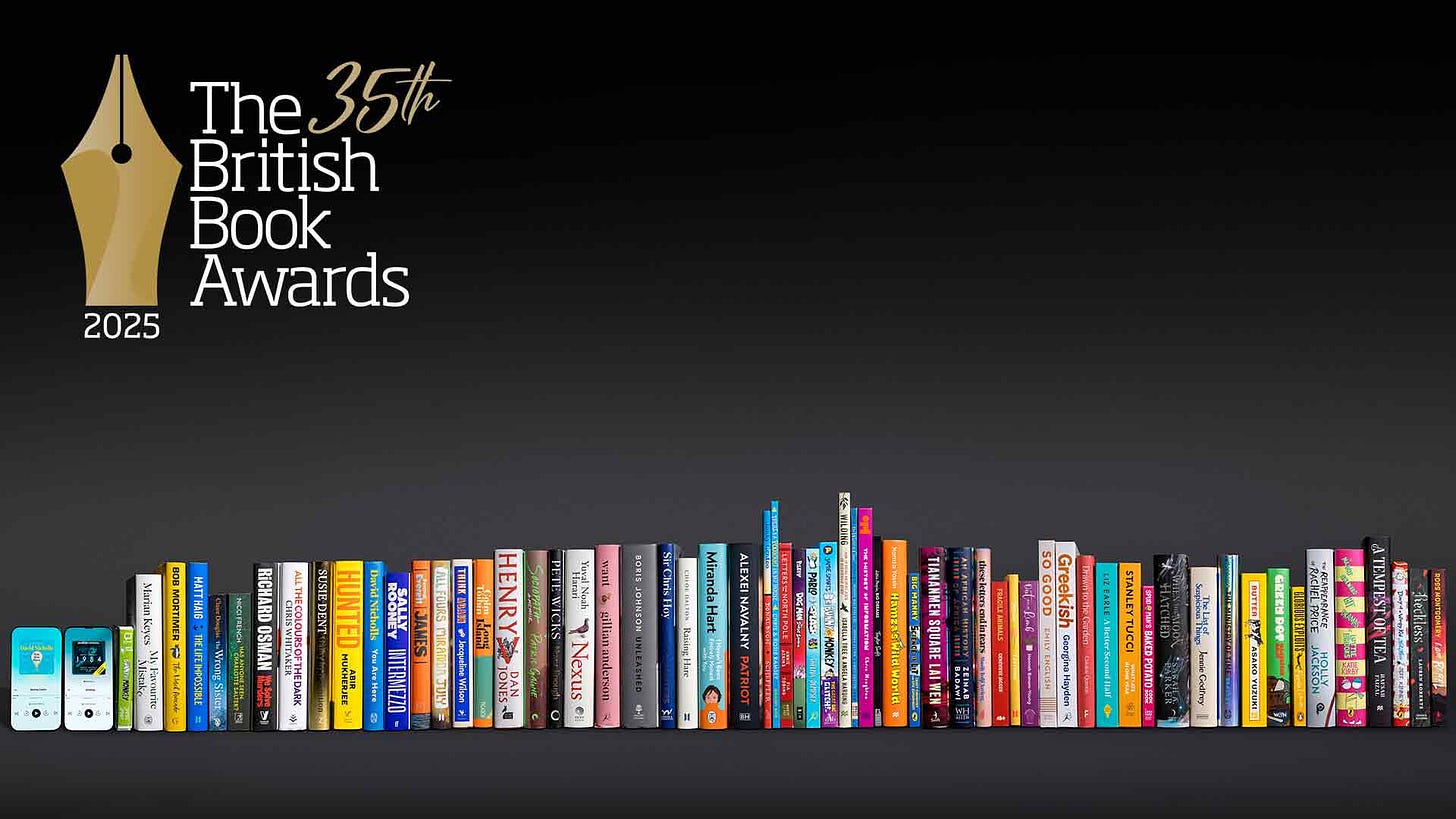
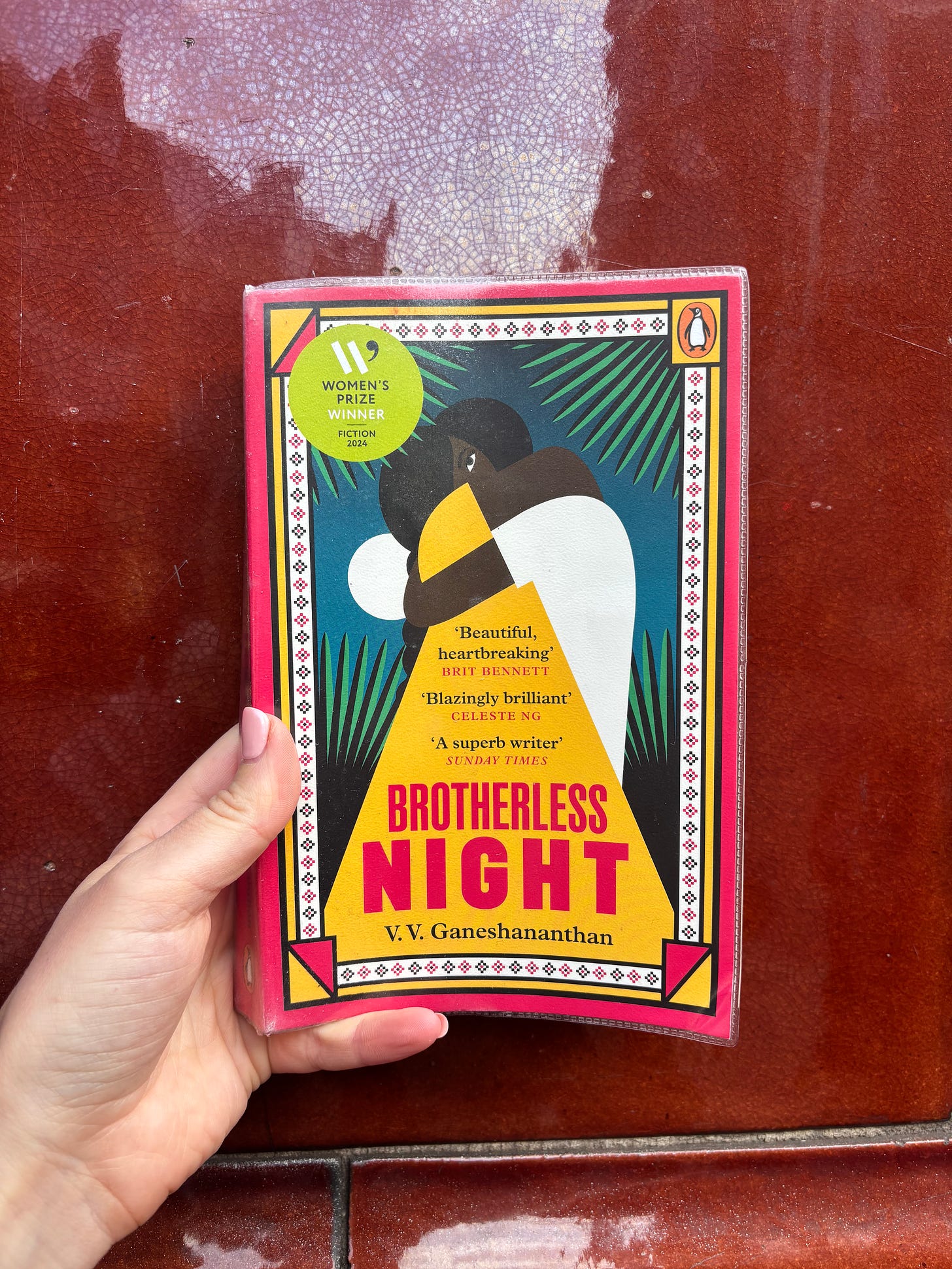
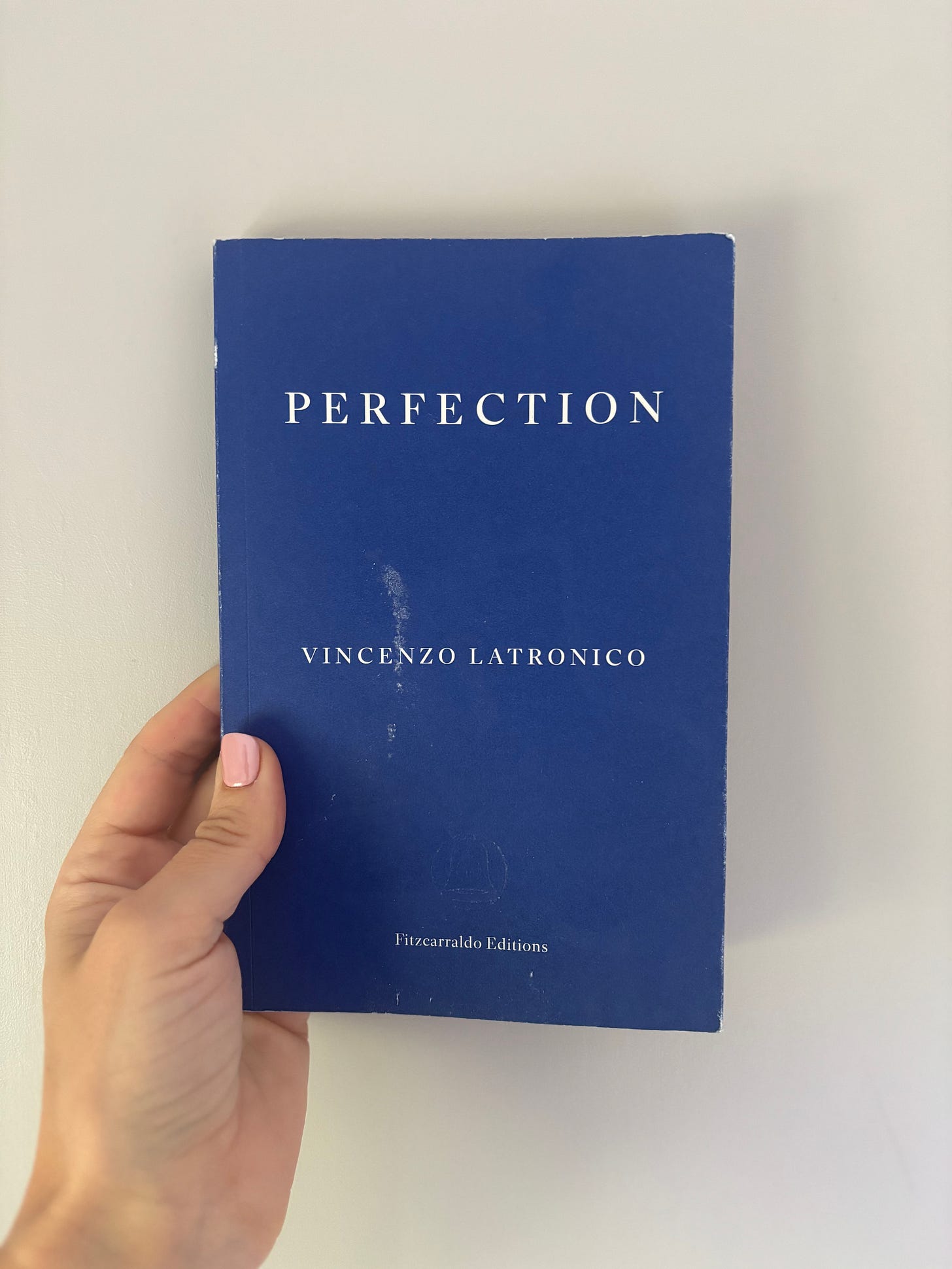
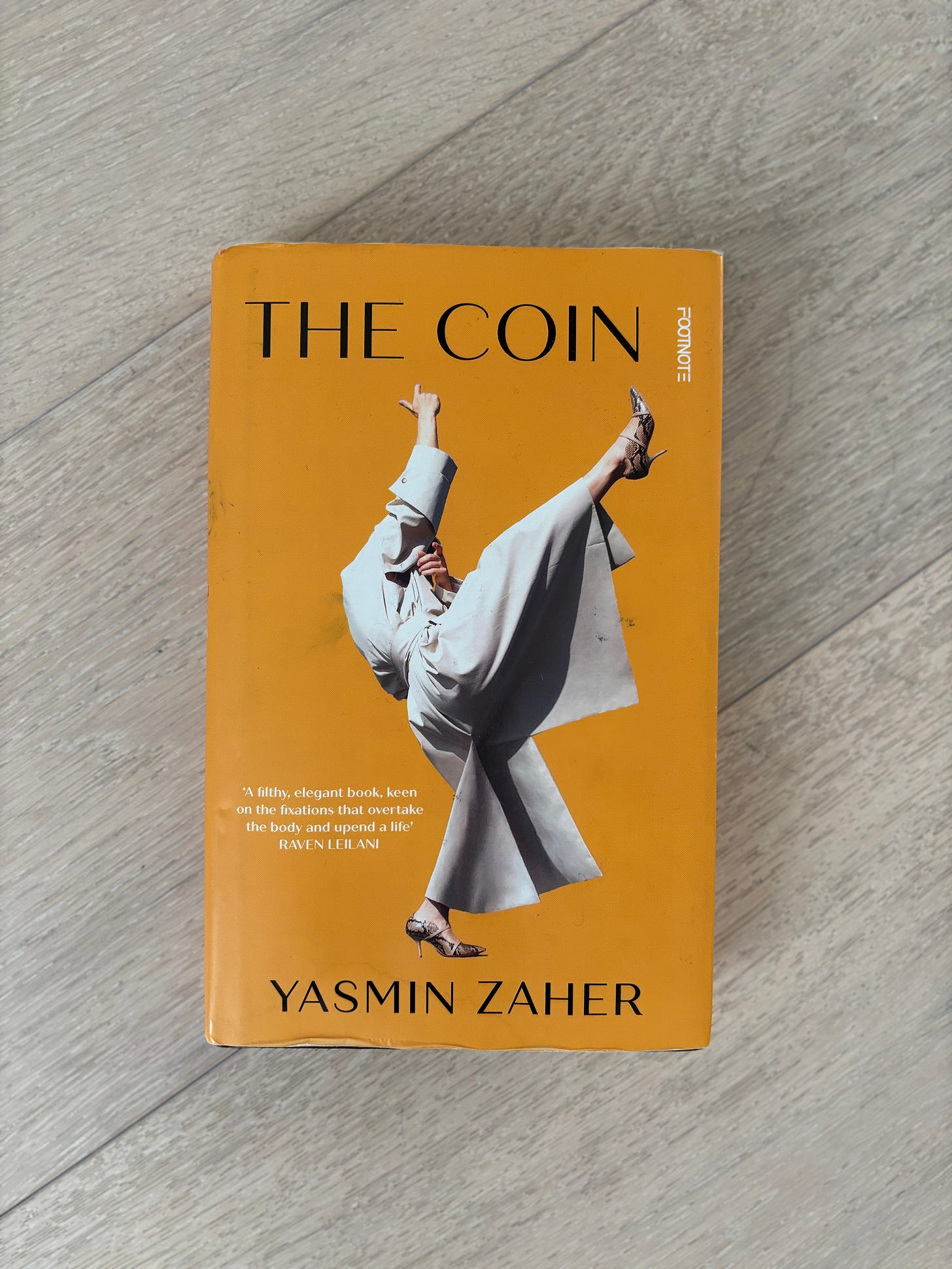
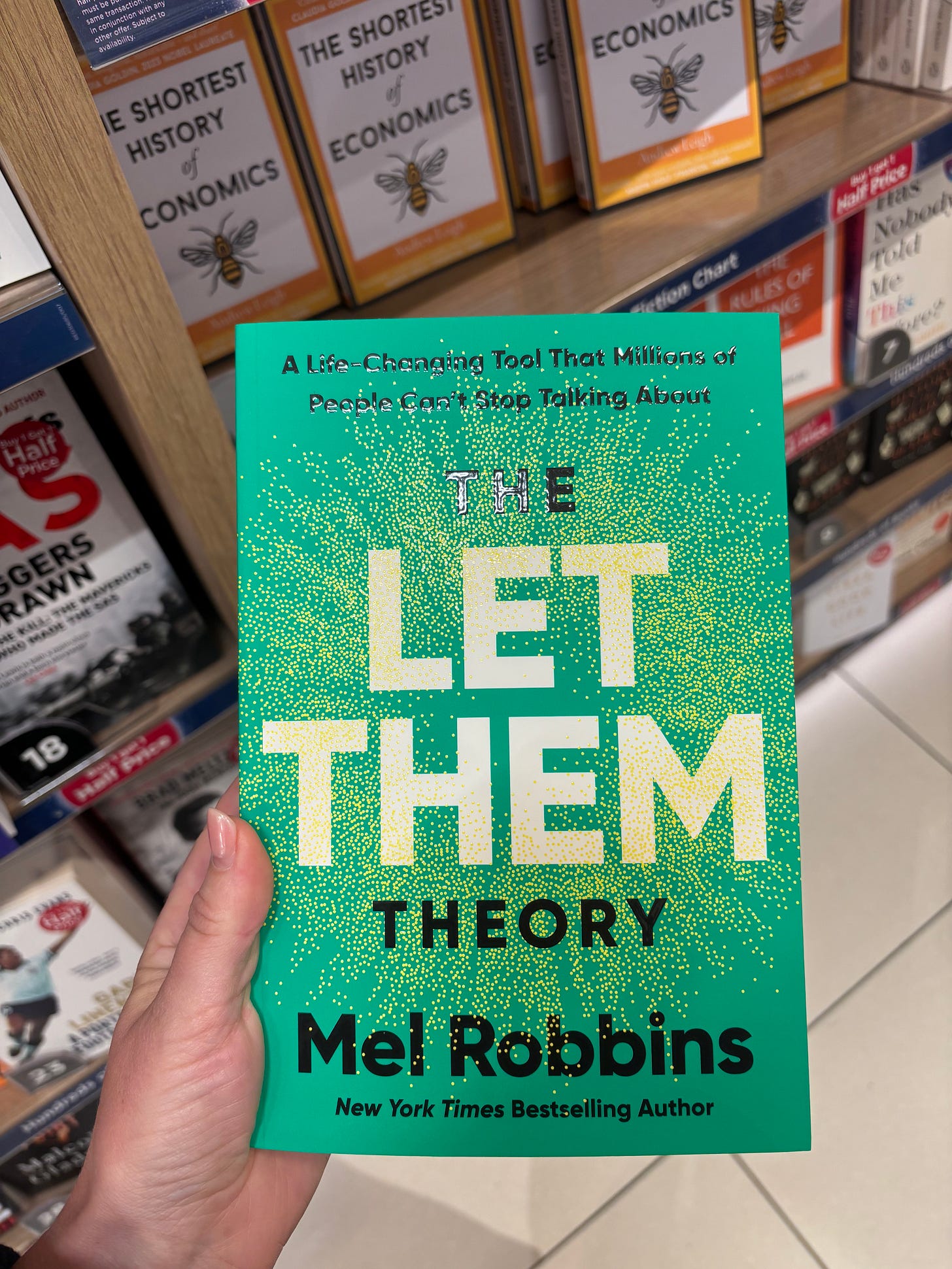
I still need to read Brotherless Night - it sounds so good!